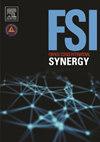Public views of forensic science: An intersection of science and policing?
Q1 Social Sciences
引用次数: 0
Abstract
Consistent with the growing interest in public attitudes toward forensic science, the present study focuses on the potential antecedents of trust in forensics. Collecting and analyzing forensic evidence involves scientific methods, and thus trust in science as a whole may influence trust in forensics. At the same time, because the police are responsible for collecting and analyzing forensic evidence, public trust in the police may affect perceptions of forensic science. These hypothesized relationships align with theories of generalized trust, which suggest that individuals apply broad trust orientations across different authorities and social institutions. To test the role of these views as antecedents of trust in forensics, 1,342 Israelis were surveyed about their views of forensic science, the police, and science as a whole. A cluster analysis identified three groups of people: those expressing high levels of trust in all three institutions; those expressing low trust in all three; and those expressing high trust in science and forensics but low trust in the police. The clusters were associated with several socio-demographic characteristics. Moreover, correlations reveal that trust in forensics is associated with trust in science and, to a lesser extent, with trust in the police, and may be embedded within broader patterns of institutional trust.
公众对法医学的看法:科学与警务的交集?
随着公众对法医学的态度越来越感兴趣,本研究的重点是对法医学信任的潜在前提。收集和分析法医证据涉及科学方法,因此对科学的整体信任可能影响对法医的信任。同时,由于警察负责收集和分析法医证据,公众对警察的信任可能会影响对法医科学的看法。这些假设的关系与广义信任理论相一致,该理论表明个体在不同的权威和社会机构中应用广泛的信任取向。为了测试这些观点在法医学信任中所起的作用,对1342名以色列人进行了调查,了解他们对法医学、警察和整个科学的看法。聚类分析确定了三类人:对所有三个机构都表示高度信任的人;对三者的信任度都较低的人;以及那些对科学和法医学表示高度信任,但对警察信任度较低的人。这些聚类与若干社会人口特征有关。此外,相关性表明,对法医的信任与对科学的信任有关,并在较小程度上与对警察的信任有关,并且可能嵌入更广泛的机构信任模式中。
本文章由计算机程序翻译,如有差异,请以英文原文为准。
求助全文
约1分钟内获得全文
求助全文
来源期刊

Forensic Science International: Synergy
Social Sciences-Law
CiteScore
4.90
自引率
0.00%
发文量
75
审稿时长
90 days
 求助内容:
求助内容: 应助结果提醒方式:
应助结果提醒方式:


